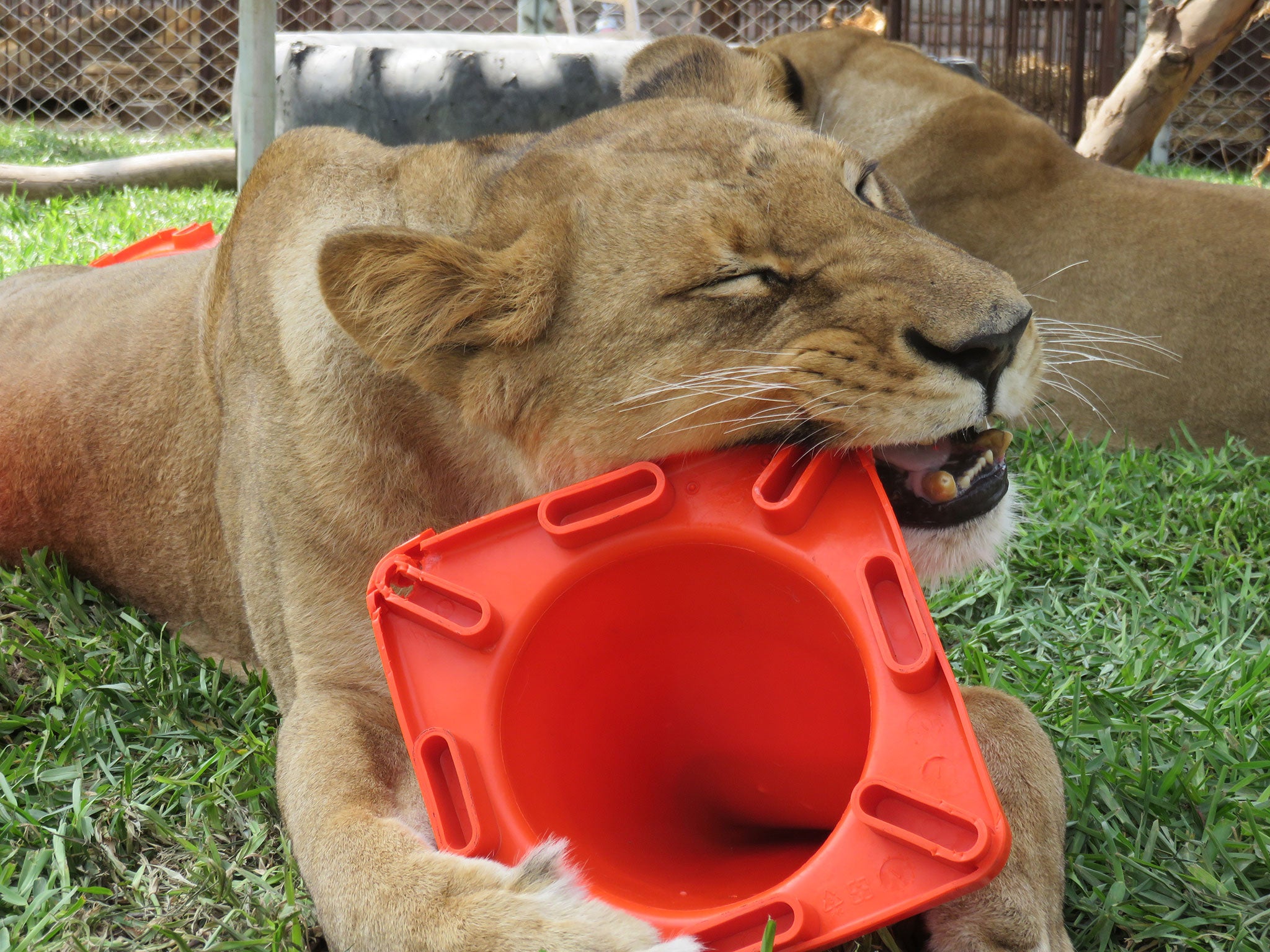Lions saved from Peru circus start new life in South Africa after help from UK charity
The creatures are being nursed back to health after years of abuse

Your support helps us to tell the story
From reproductive rights to climate change to Big Tech, The Independent is on the ground when the story is developing. Whether it's investigating the financials of Elon Musk's pro-Trump PAC or producing our latest documentary, 'The A Word', which shines a light on the American women fighting for reproductive rights, we know how important it is to parse out the facts from the messaging.
At such a critical moment in US history, we need reporters on the ground. Your donation allows us to keep sending journalists to speak to both sides of the story.
The Independent is trusted by Americans across the entire political spectrum. And unlike many other quality news outlets, we choose not to lock Americans out of our reporting and analysis with paywalls. We believe quality journalism should be available to everyone, paid for by those who can afford it.
Your support makes all the difference.The traffic cones last a day, the giant bags of catnip a few minutes, the footballs just seconds. In a temporary compound in a dusty, down-at-heel suburb of Lima, the toys, and the stimulation they provide, are among the first treats that 24 lions rescued from Peruvian circuses have ever experienced.
The big cats were seized, with the aid of local authorities, by Animal Defenders International (ADI), a British charity that first campaigned for Peru’s ground-breaking 2011 national ban – which the UK and US have yet to match. After years of abuse, often being fed a meagre diet of chicken feet, and only ever briefly escaping tiny cages to provide a spectacle for circus-goers, the creatures are being nursed back to health.
In November, with nine more lions from Colombia, they embark on the final stage of their journey, on a chartered plane, to a new life of relative freedom in a South African sanctuary. The airlift is thought to be the largest ever of big cats. All were born into captivity, says ADI President Jan Creamer, with many having been declawed. Others have wasted muscles and broken teeth, the result of being “disciplined” with crowbars. A couple are nearly blind due to a lack of veterinary treatment.
That means none have the hunting skills needed to be released into the wild. Instead, their new lives at the private Emoya Big Cat Sanctuary, in Limpopo province, will be the perfect finale to a story that might have seen them otherwise being put down.
Several of them who arrived badly underweight are piling on the pounds. The lions, which are social animals, are also being carefully introduced to each other to allow them to form prides. They are also being microchipped to allow easy tracking of them at Emoya.
Join our commenting forum
Join thought-provoking conversations, follow other Independent readers and see their replies
Comments